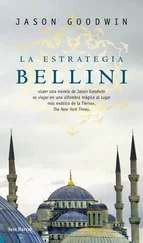Jason Goodwin - The snake stone
Здесь есть возможность читать онлайн «Jason Goodwin - The snake stone» весь текст электронной книги совершенно бесплатно (целиком полную версию без сокращений). В некоторых случаях можно слушать аудио, скачать через торрент в формате fb2 и присутствует краткое содержание. Жанр: Исторический детектив, на английском языке. Описание произведения, (предисловие) а так же отзывы посетителей доступны на портале библиотеки ЛибКат.
- Название:The snake stone
- Автор:
- Жанр:
- Год:неизвестен
- ISBN:нет данных
- Рейтинг книги:4 / 5. Голосов: 1
-
Избранное:Добавить в избранное
- Отзывы:
-
Ваша оценка:
- 80
- 1
- 2
- 3
- 4
- 5
The snake stone: краткое содержание, описание и аннотация
Предлагаем к чтению аннотацию, описание, краткое содержание или предисловие (зависит от того, что написал сам автор книги «The snake stone»). Если вы не нашли необходимую информацию о книге — напишите в комментариях, мы постараемся отыскать её.
The snake stone — читать онлайн бесплатно полную книгу (весь текст) целиком
Ниже представлен текст книги, разбитый по страницам. Система сохранения места последней прочитанной страницы, позволяет с удобством читать онлайн бесплатно книгу «The snake stone», без необходимости каждый раз заново искать на чём Вы остановились. Поставьте закладку, и сможете в любой момент перейти на страницу, на которой закончили чтение.
Интервал:
Закладка:
It was her turn to laugh. “Mon Dieu! Careme!”
“It’s lucky I still have it,” Yashim admitted. “I lost a lot of my books recently. Yesterday.”
“You were robbed?”
Yashim smiled. “It doesn’t matter. Nothing important lost. But I’m afraid the apartment is a little bare.”
“I didn’t think such things would happen in Istanbul,” Madame Lefevre said. “Max always tells me how safe it is.”
Max? Yashim frowned: she must mean her husband.
“Madame Lefevre,” he said, “Istanbul is not safe. Not safe at all.” He balled his fists. “I have some terrible news.”
Her eyes widened. “What are you saying, monsieur? Not safe? But what do you mean?” Her voice rose. “Where is Max? Where is my husband?”
“He’s dead,” Yashim said.
61
Widow Matalya went out into the yard with the big fan she used for beating her carpets, to shepherd her chickens into their run.
“Come along, pretty one,” she crooned. She put out a leathery hand. The hen crouched close to the ground, its feathered shoulders raised. The widow took it gently in two hands, lifted it under her arm, and snapped its neck.
“You were too old anyway,” she said admonishingly.
She carried the hen through the house, picking up a basket from behind the door, and sat down on a small stool in the alley. The sun had gone, but the wall was still warm against her back. She began to pluck the hen, dropping the feathers into the basket.
“Soup’s best,” she muttered to the hen. “And this one makes a good stock. A bit of rice. Nice, after a shock.”
She turned the bird on her lap and began to snatch the underfeathers from its breast.
“Not but what I’m in shock, too,” she went on. The hen’s head dangled over her knee. “It’s a disturbance, and not at all what I expect at my age. A foreign woman, too. An unbeliever-in my house!”
She gave an angry little twitch and tore the bird’s skin.
“Now look what I’ve gone and done.” She paused and made a shape with her fingers, against the Evil Eye. “She ought to go to her own people, poor thing. No husband now, and such a way from her own mother!”
She worked over the legs, and then the wings. She wondered how many chickens she’d plucked in her life. It must be hundreds. Not that she was greedy. She fed them and they fed her, and that was the way it was.
How she’d howled when Matalya died! A full day, a real clamor. She was that upset! Not the way it took those Frankish women, perhaps. Thin blood, it might be.
Widow Matalya made a mighty effort of imagination: perhaps you needed to be around your own people to properly let go, she concluded.
And there was no denying, it was good to have a bit of soup, for when you got a shock.
62
Yashim dabbed vaguely at the skin that had formed on the miyane. The fire was almost cold; he felt no urge to start again. He wasn’t really very hungry.
He looked around for a bit of bread or a biscuit, but of course the place was bare.
He climbed onto the sofa and sat with his knees drawn up, looking out of the window across the rooftops.
Miyane! It was what you made when a guest showed up unexpectedly: a thicker mix, of course. You turned some pasta into it and ate it cut up into chunks.
Madame Lefevre had been, of all things, wholly unexpected.
She had struck him as beautiful: he who walked permitted and unaffected through the sultan’s harem, among dozens of women selected from every corner of the empire for their loveliness alone. Lefevre had not been the man he would have imagined for her; he had seemed too cagy and underhanded in his manner. Whereas his wife-but there, he hardly knew what to think.
More than her beauty had affected him, of course. She had talked to him like a friend. They had even laughed together, as if they had known each other already a long time.
She had made him laugh.
He had been too intoxicated to say what he knew had to be said. Too cowardly to break the spell.
The widow had a kind heart. She would answer for the moment, but tomorrow he would have to see Madame Lefevre to her own people-the embassy again. He winced at the idea.
Mavrogordato. What had he learned from Mavrogordato?
Only that a Frenchman, in a European suit, could raise the kind of loan from a respectable banker that an Albanian in the same city struggled to raise from a loan shark. Two hundred francs!
Yashim stopped dragging at his hair.
Two hundred francs, as far as Yashim knew, was about six hundred piastres.
63
It was not yet completely dark when Yashim reached Balat. Dim figures brushed past him in the alleys; doors banged; a little boy carrying what Yashim recognized to be a box of paper leaned his burden wearily against a wall, then hoisted it up again and pressed on. The Jews, he thought, are coming home.
The idea caught him by surprise. From across the city, the Jewish poor were streaming home with the fading light. The boy with the paper would be at his post tomorrow, soon after sunrise, crying “Carta! Carta!” all day long the way the paper sellers did on the Grande Rue. There were, now that he considered it, so many little trades in the city from which the Jews could draw a precarious living. They shined shoes, they sold flowers, they collected scrap paper and metal; they went out young-and they came home late, plodding through their broken alleyways and dirty streets with a few piastres for the family purse. The Jews were city dwellers: they worked the streets like furrows on the earth, stumbling back to Balat as if it were their village. Yashim had seen villages more filthy and decrepit than Balat, too.
He paused to remember the way, then set off down a dispiritingly narrow, twisted alleyway as fast as he dared: he wanted to reach the moneylender’s courtyard before it was dark.
The courtyard was silent. Overhead, he could make out the dark tiers of balconies, and here and there a stray line of light to indicate a drawn shutter. He knocked softly on the door of Baradossa’s cell, and then, after a minute’s silence, he knocked more loudly.
He took a few steps back and almost tumbled on a broken tile. A shutter banged open above, and a woman’s head appeared silhouetted against the dim light.
“?Que es?”
“I’m looking for Baradossa,” Yashim called back. He had no Ladino. The head disappeared and an arm reached out to pull the shutter to.
Yashim scuffed the tile with his slipper. Nobody came. Another fragment of tile lay on the ground at the side of the door: it must have slipped from the roof of Baradossa’s lean-to porch. Yashim gave up waiting for the woman to reappear and bent down to look at the tile. He wondered why it had fallen.
He went back to the opening of the courtyard and looked up the wooden staircase leading to the balconies. The stairs creaked as he climbed. He followed the balcony to the corner, passing a couple of doors, and found himself looking down onto the little pantiled roof.
He could just make out where the broken tile had come from, about halfway up the roof where there was a gap like a wound between the tiles.
There was no light showing from the room beneath.
Yashim snaked over the balustrade, which rocked dangerously, and placed his feet on the pantiled roof.
He descended the slope cautiously, keeping his feet on the ridges. Then he squatted over the gap and quietly lifted the overlying tile. He raised the next one a little, to let it slide out, and set it down gingerly beside him. He slid his fingers into the gap and the underlying tile came away with a dry rasp. The battens were about eighteen inches apart.
High overhead a door opened and he heard a woman’s voice; it was suppressed but full of anger. A man answered brusquely, from along the balcony; the door slammed shut and the man came heavily down the staircase. On the first-floor landing he turned unsteadily. Yashim saw him put his hand on the balustrade and lean forward, as if he were peering into the dark; then he took a step backward, straightened up, and sighed. Yashim relaxed; after a few moments the man adjusted himself and lurched back to the staircase. He went down into the courtyard and out into the alley beyond.
Читать дальшеИнтервал:
Закладка:
Похожие книги на «The snake stone»
Представляем Вашему вниманию похожие книги на «The snake stone» списком для выбора. Мы отобрали схожую по названию и смыслу литературу в надежде предоставить читателям больше вариантов отыскать новые, интересные, ещё непрочитанные произведения.
Обсуждение, отзывы о книге «The snake stone» и просто собственные мнения читателей. Оставьте ваши комментарии, напишите, что Вы думаете о произведении, его смысле или главных героях. Укажите что конкретно понравилось, а что нет, и почему Вы так считаете.












